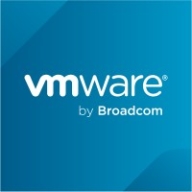

Spring Cloud Data Flow and Equalum compete in data integration and streaming. Equalum seems to have the upper hand due to its advanced real-time data processing and transformation features, suggesting it may be worth its higher cost.
Features: Spring Cloud Data Flow supports a microservices-based architecture, offers flexibility in deployment, and automates workflows effortlessly. Equalum excels in real-time data ingestion, provides enterprise-grade connectivity, and delivers precise data accuracy ensuring exact source-to-target data flow.
Room for Improvement: Spring Cloud Data Flow could enhance its real-time processing capabilities and add more intuitive user interface features for non-developers. It also lacks integrated enterprise-grade capabilities compared to its competitors. Equalum could benefit from more customization options for advanced users and streamlined integration with non-standard data sources. Expanding its documentation and community support could also enhance its offering.
Ease of Deployment and Customer Service: Spring Cloud Data Flow presents multiple deployment options across cloud and on-premise environments, offering versatility in integration. Equalum, known for its straightforward deployment model, provides excellent customer support, ensuring efficient implementation and problem resolution.
Pricing and ROI: Spring Cloud Data Flow generally results in lower setup costs, appealing to budget-conscious organizations. In contrast, Equalum, which may require a higher initial investment, promises substantial ROI due to its high-performance data processing and streaming capabilities, justifying its premium price for many users.
| Product | Market Share (%) |
|---|---|
| Spring Cloud Data Flow | 1.2% |
| Equalum | 0.4% |
| Other | 98.4% |

| Company Size | Count |
|---|---|
| Small Business | 2 |
| Midsize Enterprise | 1 |
| Large Enterprise | 4 |
| Company Size | Count |
|---|---|
| Small Business | 3 |
| Midsize Enterprise | 1 |
| Large Enterprise | 5 |
Equalum is a fully-managed, end-to-end data integration and real-time data streaming platform, powered by industry-leading change data capture (CDC) tech and modern data transformation capabilities (streaming ETL and ELT). Equalum's enterprise-grade platform features intuitive UI allowing you to build robust, real-time data pipelines in minutes.
Spring Cloud Data Flow is a toolkit for building data integration and real-time data processing pipelines.
Pipelines consist of Spring Boot apps, built using the Spring Cloud Stream or Spring Cloud Task microservice frameworks. This makes Spring Cloud Data Flow suitable for a range of data processing use cases, from import/export to event streaming and predictive analytics. Use Spring Cloud Data Flow to connect your Enterprise to the Internet of Anything—mobile devices, sensors, wearables, automobiles, and more.
We monitor all Data Integration reviews to prevent fraudulent reviews and keep review quality high. We do not post reviews by company employees or direct competitors. We validate each review for authenticity via cross-reference with LinkedIn, and personal follow-up with the reviewer when necessary.